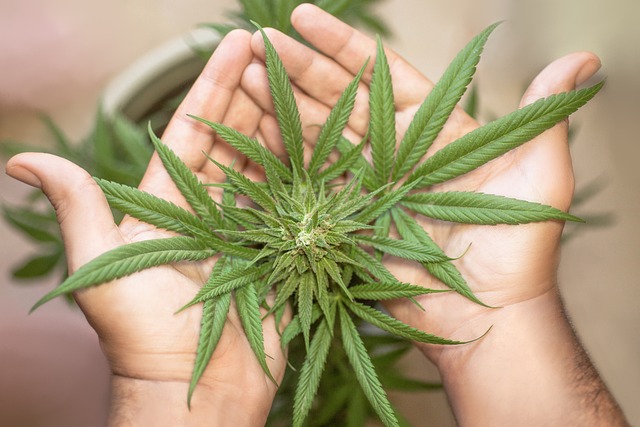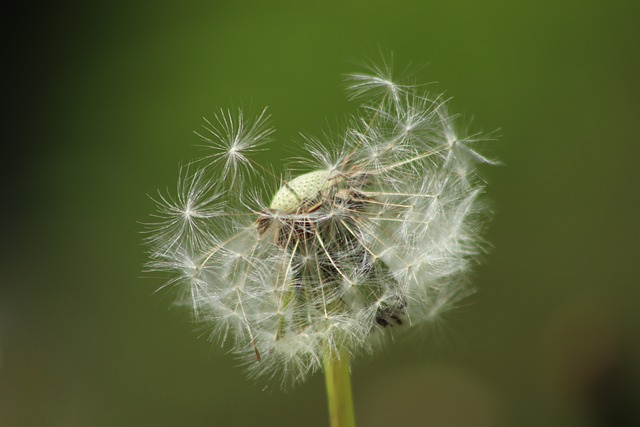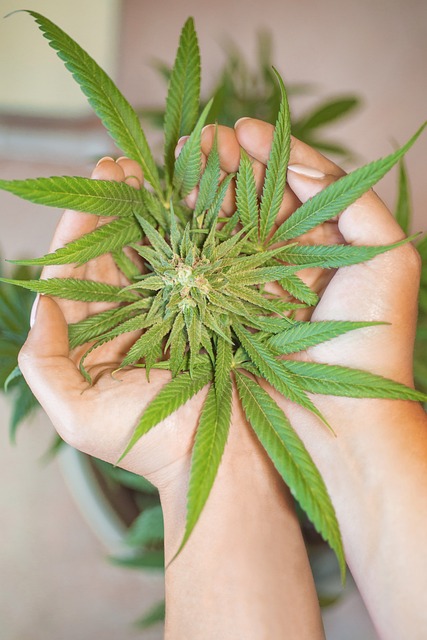
The THCA flower, a non-psychoactive compound found in cannabis plants and a precursor to THC, has been studied for its potential health benefits, including anti-inflammatory, antiemetic, neuroprotective, analgesic, and anti-nausea properties. It interacts with the endocannabinoid system, which plays a crucial role in regulating bodily functions. To safely utilize THCA flower for wellness purposes, it's essential to follow personalized dosage guidelines, taking into account factors such as body weight, tolerance, and specific health concerns. New users should start with a low dose, typically around 1-2 milligrams per every 10 pounds of body weight, and adjust as needed based on individual responses. The effects may take from 30 minutes to two hours to be felt. It's advisable to consult healthcare professionals before incorporating THCA flower into your health routine, especially if you are on other medications or managing a health condition. Adhering to THCA flower dosage guidelines helps ensure a safe and effective experience, optimizing its potential benefits while minimizing side effects. As research continues, the full scope of THCA's therapeutic applications remains an area of growing interest and exploration in the field of wellness.
Explore the therapeutic properties of THCA flower, a non-psychoactive compound from the cannabis plant, gaining attention for its potential health benefits. This article demystifies the science behind THCA and offers practical dosage guidelines to harness its advantages. From understanding its effects on health to seamlessly integrating it into your wellness routine, discover how THCA flower can be a valuable addition to your daily well-being practices. Join us as we delve into the myriad benefits of this cannabinoid and guide you through optimal consumption for maximum benefit.
- Unlocking the Potential of THCA Flower: An Overview of Its Benefits
- Understanding THCA: The Non-Psychoactive Cannabinoid with Promising Health Implications
- Optimal THCA Flower Dosage Guidelines for Maximizing Benefits
- The Science Behind THCA Flower and Its Positive Effects on Health
- Incorporating THCA Flower into Your Wellness Routine: Tips and Best Practices
Unlocking the Potential of THCA Flower: An Overview of Its Benefits

The THCA flower, which is the raw, unheated form of cannabis that contains tetrahydrocannabinolic acid (THCa), has garnered attention for its potential health benefits. Unlike its psychoactive counterpart THC, THCa is non-psychoactive, offering a range of wellness effects without the ‘high’ typically associated with cannabis consumption. As research continues to unfold, users are turning to THCa flower as a natural remedy for various conditions, including inflammation, nausea, and neurological disorders. The therapeutic properties of THCa are believed to stem from its interaction with the body’s endocannabinoid system, which plays a role in regulating mood, appetite, pain sensation, and memory.
When considering the use of THCa flower, dosage guidelines are crucial for optimizing benefits while minimizing adverse effects. Typical dosages can vary widely based on individual factors such as body weight, tolerance, and the specific condition being addressed. It is generally recommended to start with a low dose and gradually increase it over time to gauge one’s response. For example, new users might begin with a single puff from a vaporizer every few hours as needed, while more experienced users might consume larger amounts throughout the day. Regardless of experience level, it is imperative to approach THCa flower use responsibly and to consult with a healthcare professional when integrating it into an existing treatment regimen. Adherence to dosage guidelines ensures a safe and effective experience with the benefits of THCa flower.
Understanding THCA: The Non-Psychoactive Cannabinoid with Promising Health Implications

THCA, or tetrahydrocannabinolic acid, is a natural cannabinoid found in the resin of the cannabis plant. Unlike its well-known counterpart THC, THCA does not possess psychoactive properties, making it an appealing option for individuals seeking the potential health benefits without the mind-altering effects. Emerging research suggests that THCA may offer a range of therapeutic properties, including anti-inflammatory, anti-nausea, and neuroprotective effects, which could be beneficial in managing various conditions.
When incorporating THCA flower into wellness routines, it’s crucial to adhere to dosage guidelines tailored to individual needs. Dosage can vary based on an individual’s body chemistry, the condition being addressed, and the potency of the THCA product. Generally, users should start with a low dose to gauge effects before gradually increasing as necessary. It’s recommended to consult with a healthcare provider or a knowledgeable dispensary staff member to determine the most appropriate THCA flower dosage for one’s specific health goals. Proper dosing is key to maximizing the potential benefits of THCA while minimizing any adverse effects.
Optimal THCA Flower Dosage Guidelines for Maximizing Benefits

When exploring the potential benefits of THCA flower, understanding the optimal dosage is crucial for an effective experience. THCA, or tetrahydrocannabinolic acid, is the raw form of THC found in raw cannabis plants and has been studied for its various therapeutic properties. As with any wellness supplement, the appropriate THCA flower dosage can vary depending on individual physiology, desired effects, and the specific product’s potency.
For those new to THCA, it’s advisable to start with a low dosage. Typically, a range of 1-2 milligrams of THCA per 10 pounds of body weight can be considered a conservative starting point. This amount should be monitored for effects before increasing the dosage gradually. It’s important to note that THCA flower effects can take effect more slowly than other cannabinoids, with onset times ranging from 30 minutes to two hours. Users should allow ample time for the substance to take effect before determining if a higher dosage is necessary.
As one adjusts their dosage, it’s essential to consider factors such as tolerance, sensitivity to cannabinoids, and the specific conditions being addressed. Consistency in dosing can help in tracking personal responses to THCA flower. It’s also recommended to consult with a healthcare professional before incorporating THCA into one’s wellness regimen, especially if other medications are being taken or for those with pre-existing health conditions. By adhering to THCA flower dosage guidelines and closely monitoring individual responses, users can maximize the potential benefits of this cannabinoid.
The Science Behind THCA Flower and Its Positive Effects on Health

Delta-9 tetrahydrocannabinol (THC) is well-known for its psychoactive properties, but its precursor, tetrahydrocannabinolic acid (THCA), has been gaining attention for its potential health benefits. THCA is the non-psychoactive form of THC found abundantly in raw or uncured cannabis flowers and is subject to decarboxylation—a process that converts THCA into THC when heated. Research suggests that THCA interacts with the body’s endocannabinoid system, which plays a significant role in regulating various functions and maintaining homeostasis.
Studies have indicated that THCA may offer several therapeutic effects, including anti-inflammatory, anti-nausea, anti-emetic (reducing nausea and vomiting), neuroprotective, and analgesic properties. These potential benefits make THCA an object of interest for those seeking alternative health remedies. It’s important to follow thca flower dosage guidelines to ensure safety and efficacy. These guidelines recommend starting with a low dose to gauge individual tolerance and effects, as the optimal dosage can vary based on factors like body weight, metabolism, and specific health conditions. Users should consult with healthcare professionals or qualified cannabis experts to determine the most appropriate THCA flower dosage for their particular needs. As research continues to evolve, the full scope of THCA’s effects and its potential applications in various health and wellness regimens remains an exciting area of exploration within the scientific community.
Incorporating THCA Flower into Your Wellness Routine: Tips and Best Practices

Including THCA flower in your wellness routine can be a thoughtful addition to your self-care practices, provided it aligns with your health goals and local regulations. THCA, or tetrahydrocannabinolic acid, is the raw form of THC found in hemp and cannabis plants, offering potential benefits without the psychoactive effects associated with THC once it’s exposed to heat. To effectively incorporate THCA flower into your wellness regimen, it’s crucial to understand proper dosing. Consulting with a healthcare provider or a knowledgeable wellness specialist is advisable for personalized thca flower dosage guidelines that cater to your individual health needs and concerns.
When considering the best practices for using THCA flower, start by determining your desired effect from its use, as different strains can influence mood and alertness in varying ways. Consistency is key; establish a routine that allows you to assess how the THCA flower affects you over time. It’s also important to source high-quality, lab-tested THCA flower to ensure safety and efficacy. Proper storage to preserve potency and following dosage guidelines are essential steps in maintaining the integrity of the product. Always begin with a lower dosage to gauge effects and increase gradually as needed. Additionally, consider combining THCA flower with other wellness practices like mindfulness or yoga for holistic benefits. Remember to keep track of your experiences and adjust your routine accordingly for optimal well-being.
THCA flower, a non-psychoactive cannabinoid found in hemp and marijuana plants, holds promising health benefits that are increasingly recognized in wellness routines. This article has delved into the various aspects of THCA, elucidating its potential and providing clear thca flower dosage guidelines to help users maximize its advantages. The scientific evidence supporting its positive effects on health is compelling, suggesting a wide range of benefits from pain relief to neuroprotection. By following the recommended dosage and incorporating it into daily practices, individuals can explore the myriad of wellness enhancements THCA flower has to offer. As research continues to evolve, the understanding and utilization of THCA are poised to expand, further cementing its role in natural health solutions.






